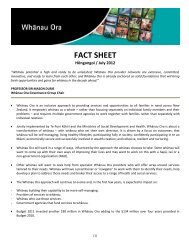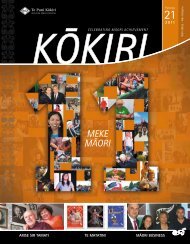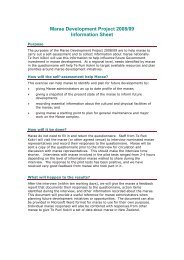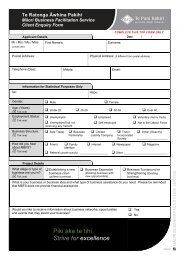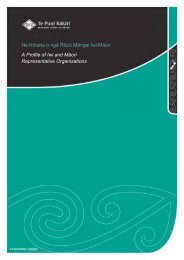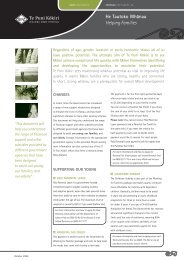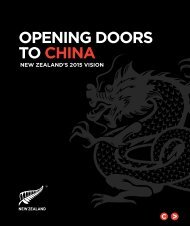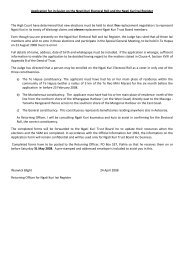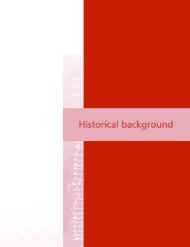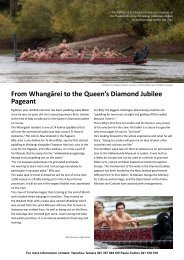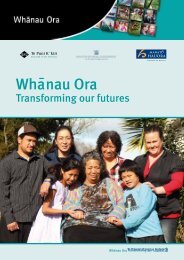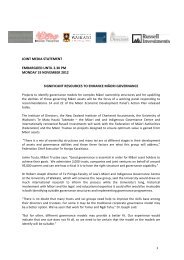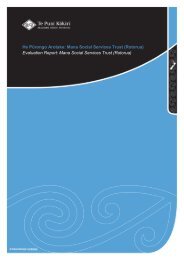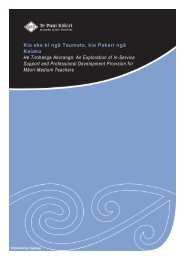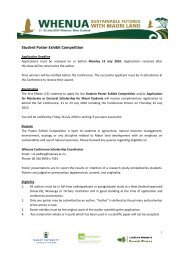Download the PDF (5.1MB) - Te Puni Kokiri
Download the PDF (5.1MB) - Te Puni Kokiri
Download the PDF (5.1MB) - Te Puni Kokiri
You also want an ePaper? Increase the reach of your titles
YUMPU automatically turns print PDFs into web optimized ePapers that Google loves.
RANGAHAU<br />
Dr <strong>Te</strong> Kani Kingi (far left), members of Ngäitai iwi<br />
(one iwi case study from Törere, Bay of Plenty) and<br />
James Hudson (far right)<br />
The research is designed<br />
to explore and test <strong>the</strong>se<br />
measurements and <strong>the</strong>n create<br />
better processes through which<br />
iwi perspectives of development<br />
can be integrated into iwi policy,<br />
planning and implementation.<br />
The benefits from this research<br />
will provide iwi with evidence to<br />
rationalise <strong>the</strong>ir resources and<br />
investments, to set priorities<br />
and to measure outcomes. By<br />
assisting economic and social<br />
growth and development within<br />
iwi and Mäori communities <strong>the</strong><br />
research will also contribute<br />
to <strong>the</strong> overall identity and<br />
uniqueness of New Zealand<br />
society.<br />
The research is a work of<br />
collaboration between<br />
researchers from Massey<br />
University, Lincoln University,<br />
and Victoria University of<br />
Wellington, along with Ngäitai<br />
and Ngäti Turangitukua. The<br />
research is expected to be<br />
completed by 2011.<br />
For more information on<br />
The Quantification of Iwi<br />
Development project, please<br />
contact James Hudson at<br />
J.T.Hudson@massey.ac.nz<br />
TE PUNI KÖKIRI | KÖKIRI | HAKIHEA – KOHITÄTEA 2008<br />
43



